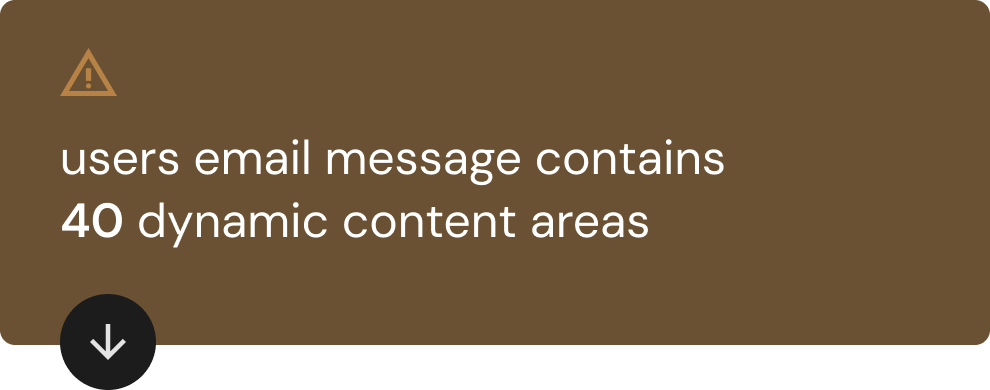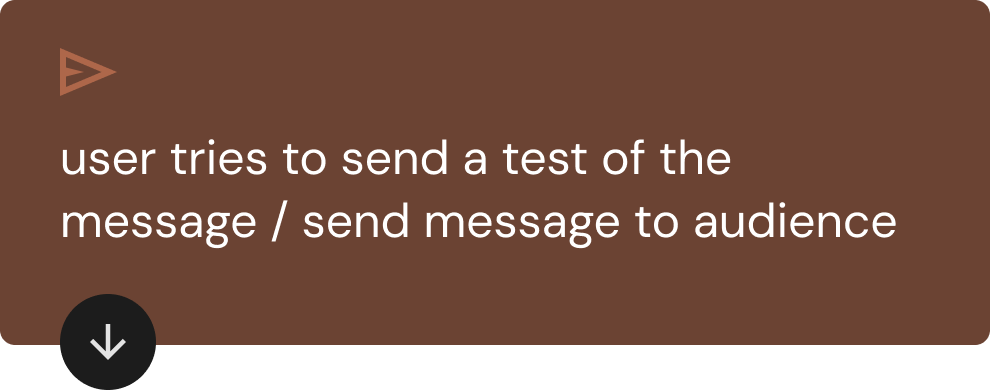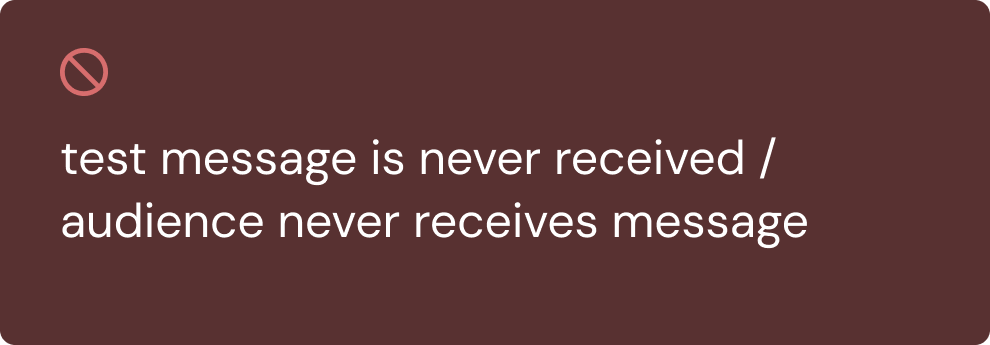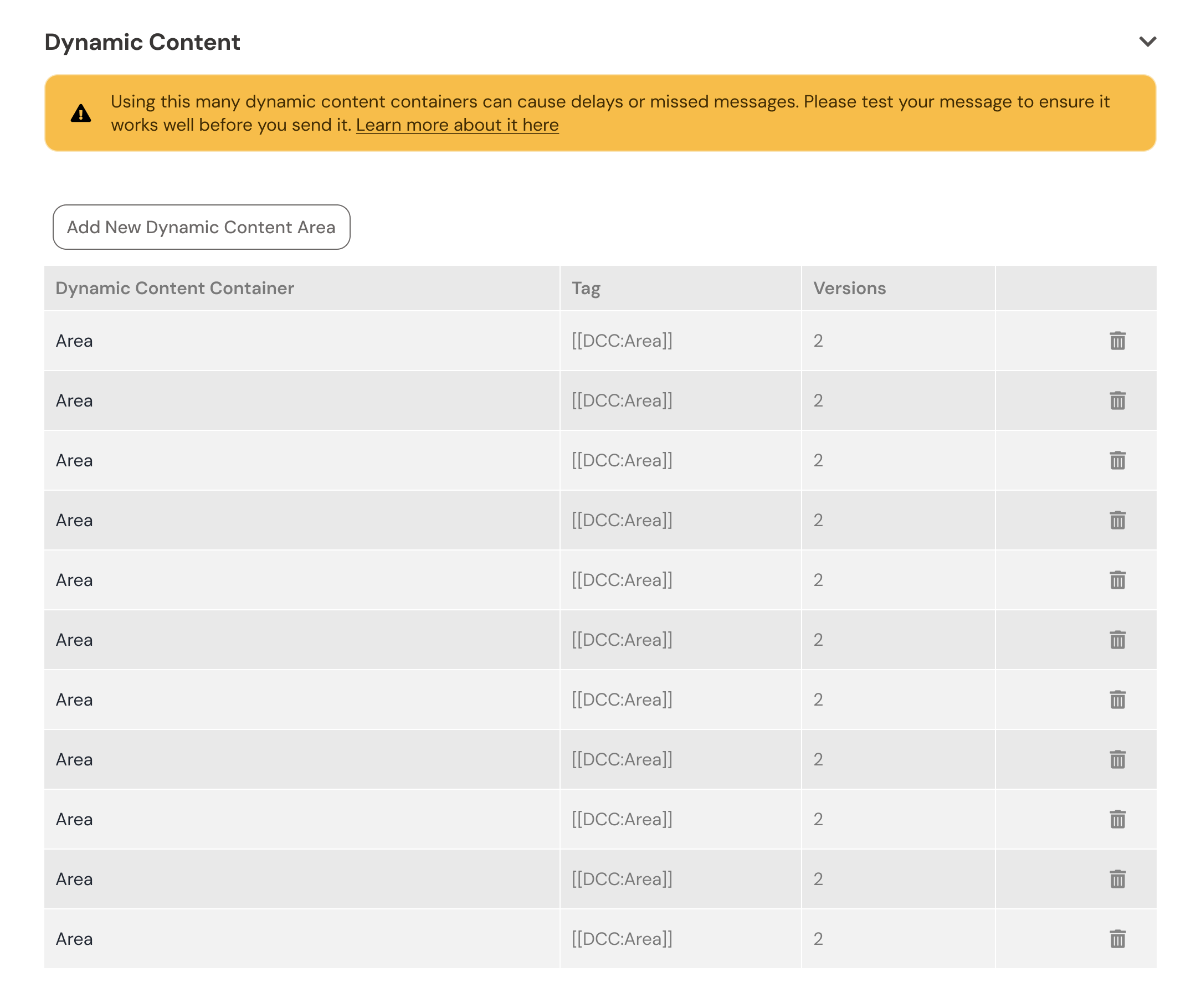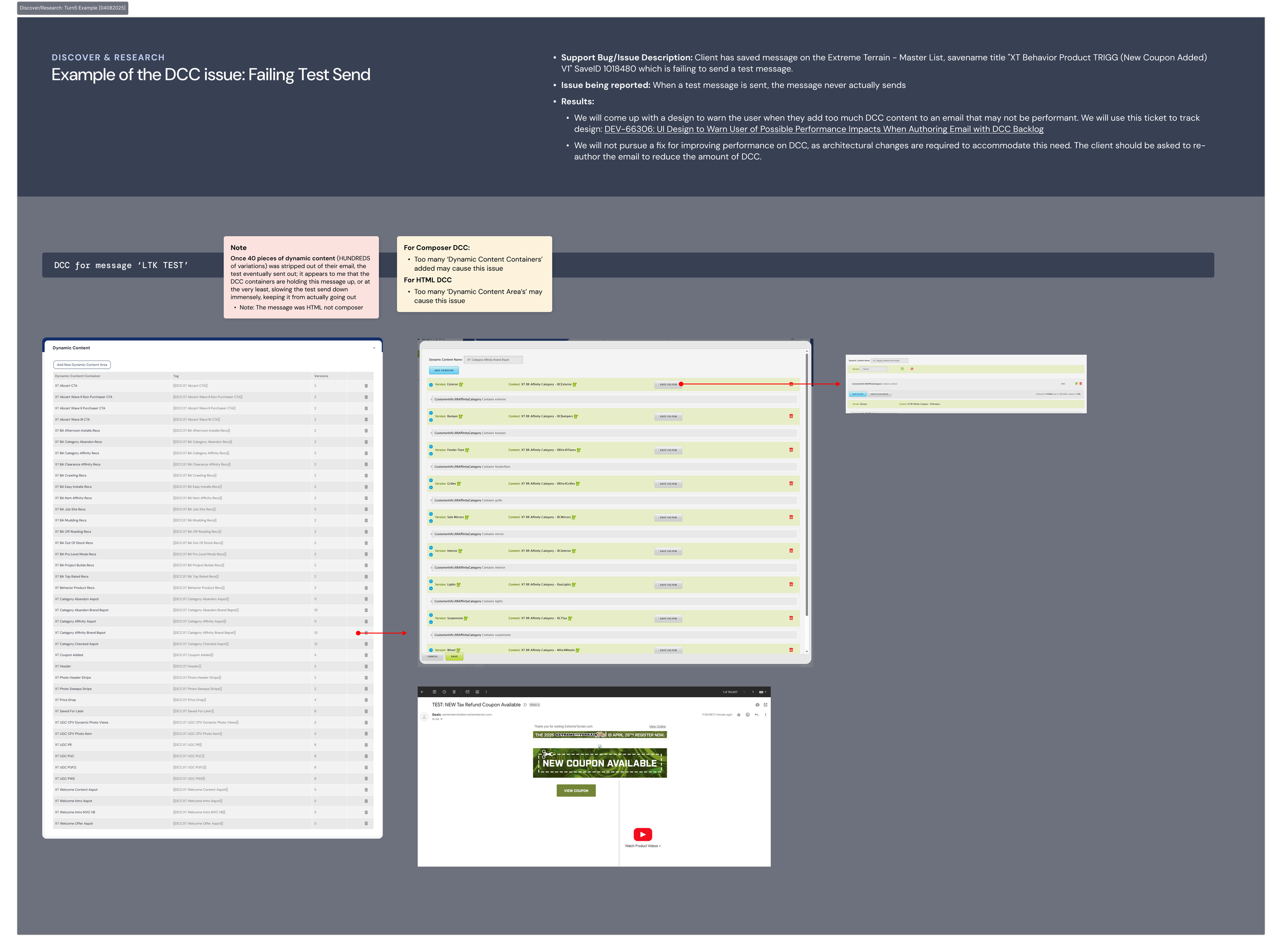Improving visibility of Dynamic Content performance warnings
product design
2025 (5 weeks)
overview
As a Product Designer at Listrak, I was tasked with improving the authoring experience in our email builder by proactively warning users about performance risks related to overusing Dynamic Content. Using the Double Diamond framework, I collaborated cross-functionally to identify pain points, explore solutions, and deliver a user-friendly warning system that helps marketers avoid delays in email delivery.
design framework
Double Diamond
tools
Figma, Jira
deliverables
Wireframes, Prototypes, Handoff Documentation
collaboration
Product Managers, Front-end Engineers, Product Designers
problem
Users had no visibility into how Dynamic Content could affect email performance, often finding out too late that their emails were delayed or undeliverable due to overuse.
what is dynamic content?
Dynamic Content allows users to include different email content to contacts who meet (or don’t meet) a filter without sending separate emails.
User flow leading to failed send
solution
Introduced proactive, context-aware warnings that notify users when they've exceeded the recommended limit of dynamic content containers, helping prevent email performance issues before they occur.
-
Users are shown a warning after adding more than 10 Dynamic Content Containers. This is a soft limit, meaning they can continue adding containers, but are made aware that performance may be impacted.
-
Because the process for adding Dynamic Content differs across editors, we introduced context-appropriate warnings in multiple areas
For HTML emails:
On the “Create Message” and “Edit Scheduled Message” pages, within the Dynamic Content card
For Composer emails (drag-and-drop builder):
Within the builder header interface
For both HTML and Composer:
In the Message Preview modal
On the Review page before sending (for immediate, scheduled, and recurring sends)
-
HTML Emails:
A warning notification appears within the Dynamic Content card, including a link to a help article for more information.
Composer (email builder):
A floating warning bar appears at the top center when expanded, and collapses into the top-right corner of the header (next to the Grid Lines toggle).
The collapsed state shows a warning icon and optionally a short label like “Warning,” keeping the UI unobtrusive.
The message is expandable so users can manage space while still being alerted
-
I advocated to standardized terminology across editors by changing “Area” to “Container” for HTML DCCs to match Composer’s language and reduce confusion.
designing for multiple workflows
The process for adding Dynamic Content differed between HTML/CSS emails and those built in Composer, Listrak’s drag-and-drop editor. I needed to find a streamlined way to warn users across both workflows without introducing unnecessary design variations that would complicate engineering implementation.
challenges
challenges
communicating an invisible risk
The root problem, performance degradation, isn’t visible to users. It was important to educate and warn without relying on technical language, making UX copy and UI placement essential for user understanding.
test sends gave false confidence
If users exceeded the recommended amount of Dynamic Content and sent a test email, the system confirmed it was sent, even if it never arrived. Without backend detection, I needed to find a way to warn users proactively during the test
send process.
limited real-time feedback
Without backend systems flagging performance risks in real time, the UI had to do the heavy lifting. Designing preemptive, non-intrusive warnings required careful judgment and collaboration across teams.
discover phase
Immersing myself in the problem space for a thorough understanding
Analyzed Jira tickets
Reviewed failed email scenario
Mapped user flow for inserting Dynamic Content so I can gauge where we could possibly warn/notify users
process overview
process overview
define phase
Defining the specific problem or challenge to be addressed
“As a digital marketer, I want to be informed when I reach a point in email authoring that DCC could impact the send performance so that I don’t go through the authoring process and find out after the fact that a message is delayed or won’t even send.”
process overview
process overview
develop phase
Brainstorming and ideating various solutions to the defined problem using low-fidelity wireframes and annotated screenshots with hand-drawn overlays
I sought to answer the following questions while ideating
Where to place the warnings (e.g. Create Message page, modal, review screen)
When to warn users (pre-threshold, at-threshold, post-threshold)
How to present the warning (inline message, tooltip, toast)
process overview
process overview
discover phase
immersing myself in the problem space for a thorough understanding
Analyzed Jira tickets
Reviewed failed email scenario
Mapped user flow for inserting Dynamic Content
process overview
process overview
